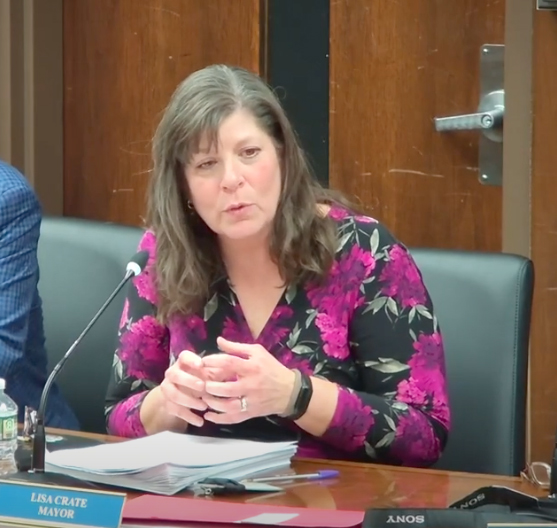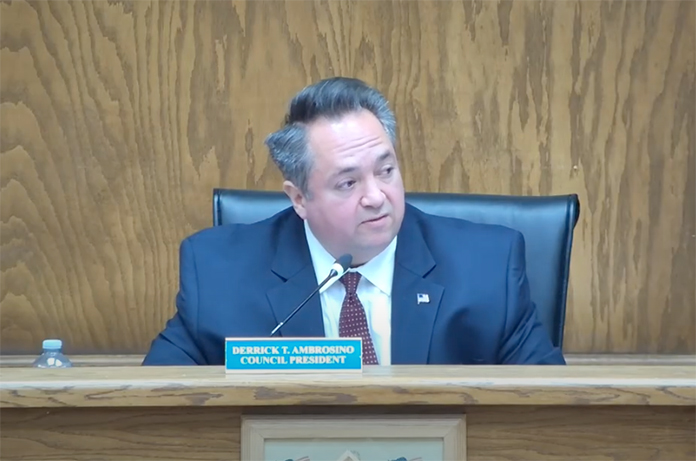
BRICK – Mayor Lisa Crate met with Police Chief David Forrester in late January to ask if there is a township process in place for the U.S. Immigration and Customs Enforcement’s (ICE) crackdown on immigration.
“I had a couple of residents reach out as well with the same question,” she said during the most recent Township Council meeting.
She said right now, the township is following the rules of the Immigrant Trust Directive, put out by the State of New Jersey in 2018 – the same directive that is currently in place – which essentially says “that local police officers are not deputized to be part of ICE, and to go out and enforce whatever they’re doing other than they can assist if there have been people who have broken the law.”
The NJ Immigrant Trust Directive is a statewide policy “designed to strengthen trust between New Jersey’s law enforcement officers and the state’s diverse immigrant communities,” says the website of Attorney General Matthew J. Platkin.
The directive ensures that victims and witnesses feel safe reporting crimes to local police without fear of deportation.
So if an immigrant has broken the law and ICE is asking for assistance in locating that person, the police will work with ICE, but they are not functioning as or performing the duties of ICE agents, the mayor said.
“We haven’t had anything happening in Brick Township, which is the other thing I asked the Chief,” she added. “ICE hasn’t come into Brick Township at this point, so we haven’t had any real connection at this point.”
The state directive says that NJ police officers cannot participate in federal immigration raids. “They cannot stop, question, arrest, search, or detain an individual based solely on actual or suspected immigration status,” unless it is relevant to a specific criminal investigation.
During the previous administration of Mayor John G. Ducey, when Mayor Crate was a council member, the governing body passed a resolution stating that Brick is not a sanctuary town, and that resolution is still in effect, she said.

Affordable Housing
In other council news, the governing body passed a resolution that authorizes the township’s position and justification that the prospective need for affordable housing in Brick includes a realistic development proposal of 29 units.
In a non-binding estimate, the Department of Community Affairs (DCA) has determined that Brick should provide additional affordable housing of 360 new construction units and rehabilitate 149 existing properties over the next decade.
Every town in New Jersey is required to provide housing for low income residents.
“The Land Use staff has provided justification based on the township’s current realistic developable land inventory that outlines the township’s prospective need under requesting that the state DCA approve our proposed number of units,” said Council President Derrick T. Ambrosino.

Brick is continuing to develop plans for affordable housing, specifically for veterans, and is looking forward to opening a small affordable housing for veterans at a Route 88 location, the council president said.
The resolution also confirms and accepts the township’s present obligation for the rehabilitation of 149 housing units.
The township has a robust housing rehabilitation program that is partially funded through grants, and is committed to providing income-qualified residents with “programmatic support,” Ambrosino said.
Some of the Brick’s affordable housing obligations have been met with apartments, townhomes and scattered houses throughout the township.
The Chambers Bridge Residence, currently owned and managed by National Church Residences, provides 184 units for low-income seniors and people with special needs.
Dottie’s House provides 17 apartments for transitional housing for victims of domestic abuse. There are also other single-family homes scattered throughout the township.






